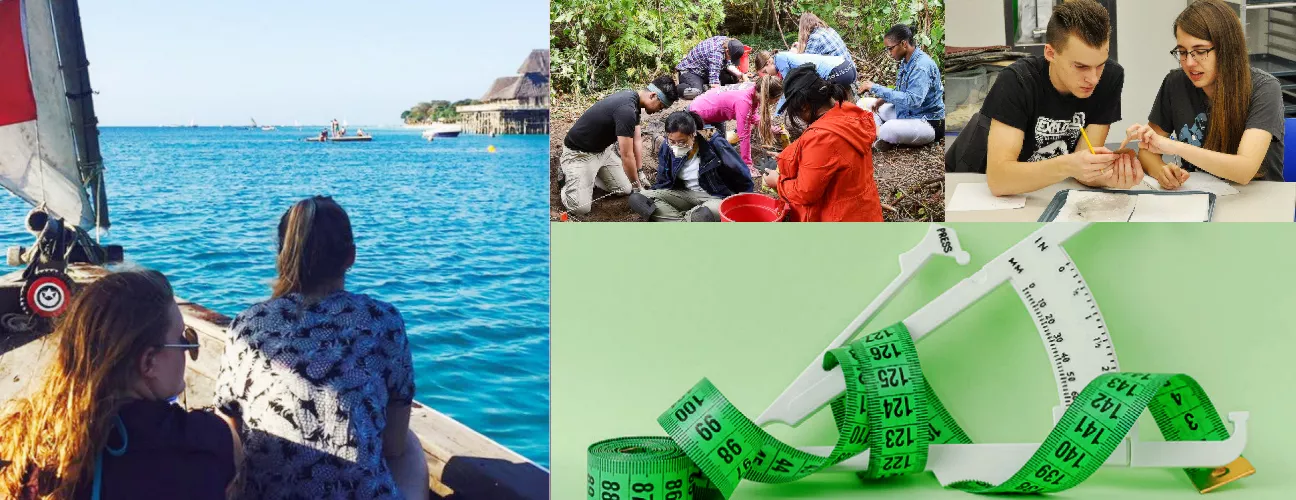
Benefits of experiential learning
UTM Anthropology courses with local or international experiential learning components can provide students with opportunities to:
- gain hands-on experience
- acquire new skills
- develop closer ties to communities
- learn about the diversity of cultures that exist in our world
- network with professionals in a specific industry
- and more!
List of UTM Anthropology courses with experiential learning components
Important information about experiential learning:
- Experiential components may vary when courses are offered. Please review the course syllabus on the Timetable Builder for current course outlines.
- Not all courses are offered each year, so be sure to consult the Timetable Builder for current course offerings.
- Check course prerequisites and view course descriptions on the UTM Academic Calendar.
Archaeology
- ANT312H5 Archaeological Analysis
- ANT318H5 Archaeological Fieldwork
- ANT414H5 People and Plants in Prehistory
- ANT415H5 Faunal Archaeo-Osteology
- ANT416H5 Advanced Archaeological Analysis
- ANT418H5 Advanced Archaeological Fieldwork
Biological Anthropology
- ANT338H5 Laboratory Methods in Biological Anthropology
Forensic Anthropology
- ANT306H5 Forensic Anthropology Field School
- ANT439H5 Advanced Forensic Anthropology
- ANT441H5 Advanced Bioarchaeology
Linguistic Anthropology
- ANT364H5 Fieldwork in Language, Culture, and Society
Sociocultural Anthropology
- ANT241H5 Anthropology and the Indigenous Peoples of Turtle Island (in Canada)
- ANT335H5 Anthropology of Gender
- ANT358H5 Field Methods in Sociocultural Anthropology
- ANT368H5 World Religions and Ecology
View the U of T Timetable Builder
Funding Opportunity: UTM Experiential Learning Bursaries
Some UTM Anthropology courses may be eligible for the UTM Experiential Learning Bursary program.
- Visit the UTM EL Bursary website for current UTM Anthropology course eligibility.
- Visit the UTM EL Bursary page for application information.
Other UTM Experiential Learning Opportunities
The UTM Research Opportunity Program (ROP) gives students from second to fourth year a chance to participate in the research of a faculty member while earning course credit.
UTM Abroad provides students with the opportunity to participate in short-term experiential learning opportunities abroad during term breaks.
